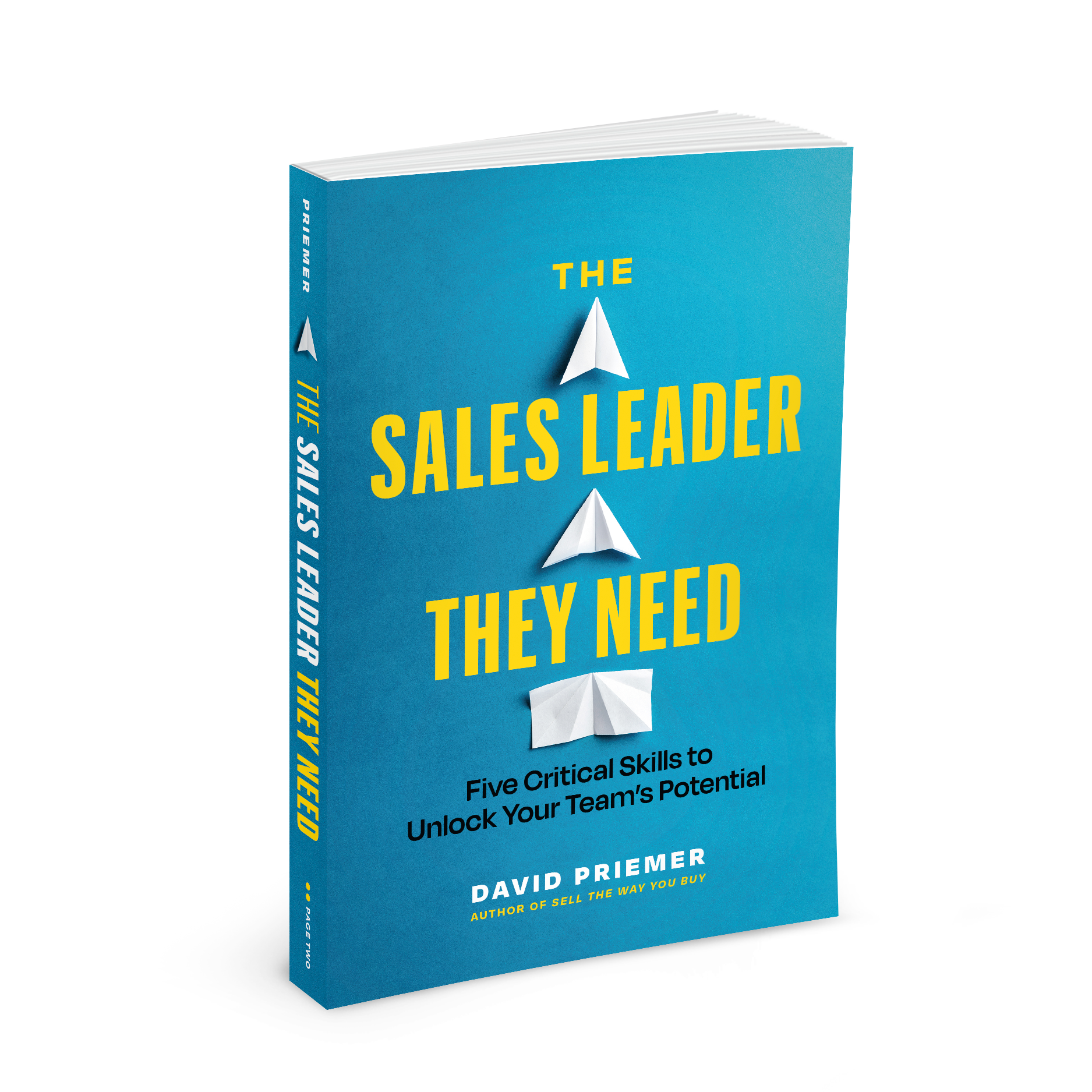How to Get Customers to Answer Your Toughest Discovery Questions
“How much money do you make?”
“What’s your home phone number?”
“How many sexual partners have you had?”
If a stranger asked you any of these questions, would you feel comfortable answering them?
Likely not.
Yet in sales, we ask our reps to go out and ask our customers similarly contentious questions all in the name of moving our deals forward.
“What’s your budget for this project?”
“How do contracts get approved?”
“Who is your boss?”
While trust (or lack thereof) plays a huge role when it comes to disclosure, one of the biggest reasons customers withhold information from sellers during discovery is simple; they’re not sure how you intend to use the information you’re asking for!
Consider that the moment you ask a buyer what their budget is, they immediately become defensive as their mind starts having thoughts like:
“Why are they asking?”
“Who are they going to share that information with?”
“Should I try to low-ball them don’t try to upsell me?”
But the good news is, when it comes to asking the important and sometimes contentious questions we need answered, there’s a super-simple antidote to make the customer feel comfortable answering! In fact, this is hands-down the most popular tactic I teach in my discovery training.
As soon as the contentious question leaves your lips, append it with what I call this simple reasoning phrase:
“The reason I ask is because …“
And then tell them why you’re asking. That’s it!
This tactic works incredibly well for three reasons:
- It’s easy: no special skill or finesse is required to execute it.
- It’s empathetic: you’re demonstrating a strong sense of self-awareness to your customer in ensuring your question and the reason behind it are clear and well-received
- It’s backed by science: as I’ve talked about in the past, the word “because” has magic properties when it comes to the science of persuasion. In short, it creates certainty in the mind of your customer as to the origin of the question and the intended use of the response. This sense of comfort makes it more likely that they’ll respond truthfully and accurately.
Here are three of the most popular ways to use this tactic.
1. While Asking a Discovery Question
This is the classical and most common way to use this tactic. As soon as the contentious question leaves your lips (almost in the same breath), follow it up with your reason. For example, “I was wondering, did you have a budget in mind for this project? The reason I ask is because…
…many of my clients don’t have budgets set aside for this type of thing and if you don’t that’s ok! Helping customers find or create budgets within their organizations is something we can help with.”
…oftentimes, customers tend to over or underestimate the amount of money they need for this type of solution, so I’m just curious to get a sense of what you were thinking.”
…based on the timeline you’ve laid out for wanting to have a solution in place, it would be helpful to have money already set aside.”
Want to hear how this version of the tactic sounds in real life? Check out this video:
2. When You Didn’t Like The Answer You Got
When salespeople ask discovery questions, we often have a clear sense of the type of response we’re expecting. But that doesn’t mean the purpose is equally clear in the minds of our customers. As a result, we might get a low-value response or one that takes us off track. Here you can follow up with a simple reasoning phrase to provide further clarity into why you’re asking to solicit more valuable insights. For example:
Seller: “How long does it typically take to get a project like this approved in your organization?”
Customer: “I’m not sure. It depends.”
Seller: “I understand. The reason I ask is because you mentioned wanting to start the project in about six weeks. We know that for most organizations it typically takes about three weeks to get the right paperwork in place, so I just wanted to make sure we’d be able to accommodate your timeline.”
Customer: “That makes sense. Our organization typically moves a little slower than most so I’ll start lining things up this week to ensure we can stay on schedule.”
3. Responding to an Objection
Discovery questions aren’t purely relegated to discovery conversations! Discovery can happen in almost any type of sales interaction, including those when customer objections surface. In these cases, you can use the simple reasoning phrase to gain additional clarity by helping focus the customer’s response. For example:
Customer: “It seems like you have a good product but it’s too expensive.”
Seller: “If you don’t mind me asking, when you say ‘it’s too expensive’, what do you mean? The reason I ask is because when customers have concerns over cost it’s sometimes because they don’t have budget set aside, it’s simply not a high enough priority for them, or they simply don’t feel the value is there. I’m curious, is one of those the reason why?”
As salespeople, our goal is to source clear and helpful answers to the questions we ask our customers. To do that we need to minimize the feelings of contentiousness and ambiguity we create when we ask them. That’s why when it comes to clarifying and focusing our intent, the simple reasoning phrase can be your best friend!
We promise never to send you junk or share your email! Just helpful sales insights.














Leave a Reply
Want to join the discussion?Feel free to contribute!